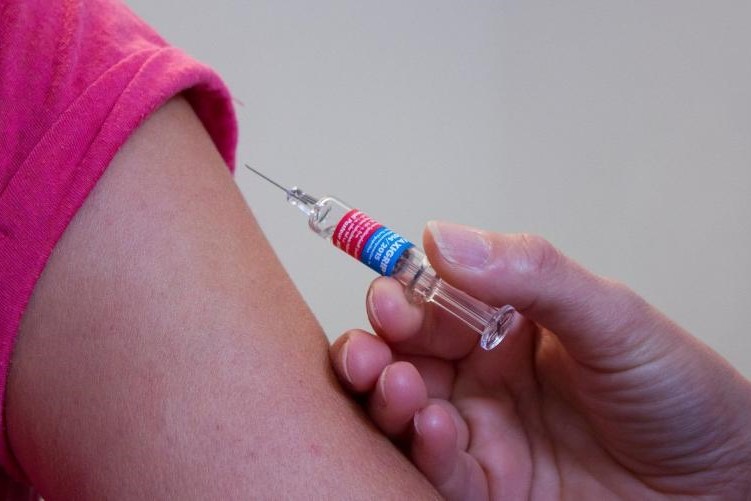
Paediatricians USA: Which Flu Vaccine Should Children Get?
About flu vaccine: many people don’t realize how serious influenza (flu) illness can be, even for previously healthy kids and teens
Children also play a role in spreading the flu in their homes and communities.
As a parent, the best thing you can do to protect your children and others from the flu is to get them vaccinated.
All children age 6 months and older should get their influenza vaccine when the shots become available, especially children who will need two shots this season
That way they will be protected before flu starts circulating in your community. It takes about two weeks after the shot to build immunity.
Which flu vaccines are available?
There are two types of influenza vaccines available. The first is what many people call the “flu shot.” The second comes as a nasal spray.
All the vaccines available for children this year protect against four different influenza viruses (two A and two B viruses).
During flu season, multiple different flu viruses may circulate. Sometimes the viruses change during the flu season.
Should I get the shot or nasal spray for my child this year?
The American Academy of Pediatrics (AAP) and the Centers for Disease Control and Prevention (CDC) want as many children as possible to get a flu vaccine every year.
Both types of flu vaccine (flu shot or nasal spray) can be given according to their indications for this flu season.
Any licensed influenza vaccine available this year and appropriate for a child’s age and health status should be given, with no preference.
Can kids get a flu vaccine and other vaccinations at the same time?
Yes. Each year, it is possible that flu, COVID-19, and other common viruses will spread at the same time. Last influenza season was longer than most.
Sometimes, the vaccine is not an exact match with the strains in the community.
But the vaccine still can protect against serious illness.
Talk with your pediatrician about your child getting the flu vaccine along with other recommended immunizations.
This includes getting a COVID-19 vaccine or booster, if they are eligible.
If my child tested positive for COVID-19, when should they get a flu vaccine?
Children with COVID-19 should get a flu vaccine after they have recovered from their COVID-19 illness.
Keep in mind that symptoms such as a stuffy and runny nose can make it hard to give the nasal spray vaccine.
What about allergies to flu vaccines?
A child who had an allergic reaction after a flu vaccine in the past should be seen by an allergist.
The allergist can help parents decide if their child should receive their annual flu vaccination.
A child with a known history of egg allergy can receive the flu vaccine.
Where should I go for my child’s flu shot?
Many pediatricians offer flu shot clinics, including curbside and drive-through clinics.
The pediatrician’s office has your child’s health information.
That makes it easy to keep track of the flu shot in your child’s health record.
If they get a flu shot somewhere else, remember to share this information with the pediatrician so the vaccination is included in your child’s health record.
CHILD HEALTH: LEARN MORE ABOUT MEDICHILD BY VISITING THE BOOTH AT EMERGENCY EXPO
Don’t let the flu stop you and your family!
Most people who get the flu are sick for at least a week. But some people get much sicker.
Getting vaccinated is the best way to prevent influenza and the serious complications that can result from it—especially for those with high-risk conditions like asthma.
For example, flu can lead to pneumonia. Kids with flu also can develop brain inflammation as well as febrile and non-febrile seizures.
The flu vaccine keeps people out of the hospital—it stops serious illness and deaths from influenza
Influenza causes thousands of deaths in the United States every year.
About 33 to 199 children and teens die each year of flu—80% of those children were not fully vaccinated.
Even children who are otherwise healthy and have no other medical conditions can be hospitalized with flu and develop life-threatening complications.
There’s no need to wait, even if your child received the previous year’s flu vaccine in March or April.
Children 6 months to 8 years of age should receive two doses if this is the first time they are being vaccinated against influenza, or if they have only received one dose of flu vaccine ever before July 1.
The doses are given four weeks apart.
We have a vaccine for flu, unlike many other respiratory viruses that make kids sick. Let’s protect our children from flu when we can.
Read Also:
Emergency Live Even More…Live: Download The New Free App Of Your Newspaper For IOS And Android
Seasonal Illnesses: What To Eat When You Have Flu?
Plaques In The Throat: How To Recognise Them
Tonsillitis: Symptoms, Diagnosis And Treatment
Sore Throat: How To Diagnose Strep Throat?
Sore Throat: When Is It Caused By Streptococcus?
Pharyngotonsillitis: Symptoms And Diagnosis
Sanofi Pasteur Study Shows Efficacy Of Co-Administration Of Covid And Influenza Vaccines
Paediatricians: ‘Flu Vaccine For Children Now, The Virus Is Coming’


